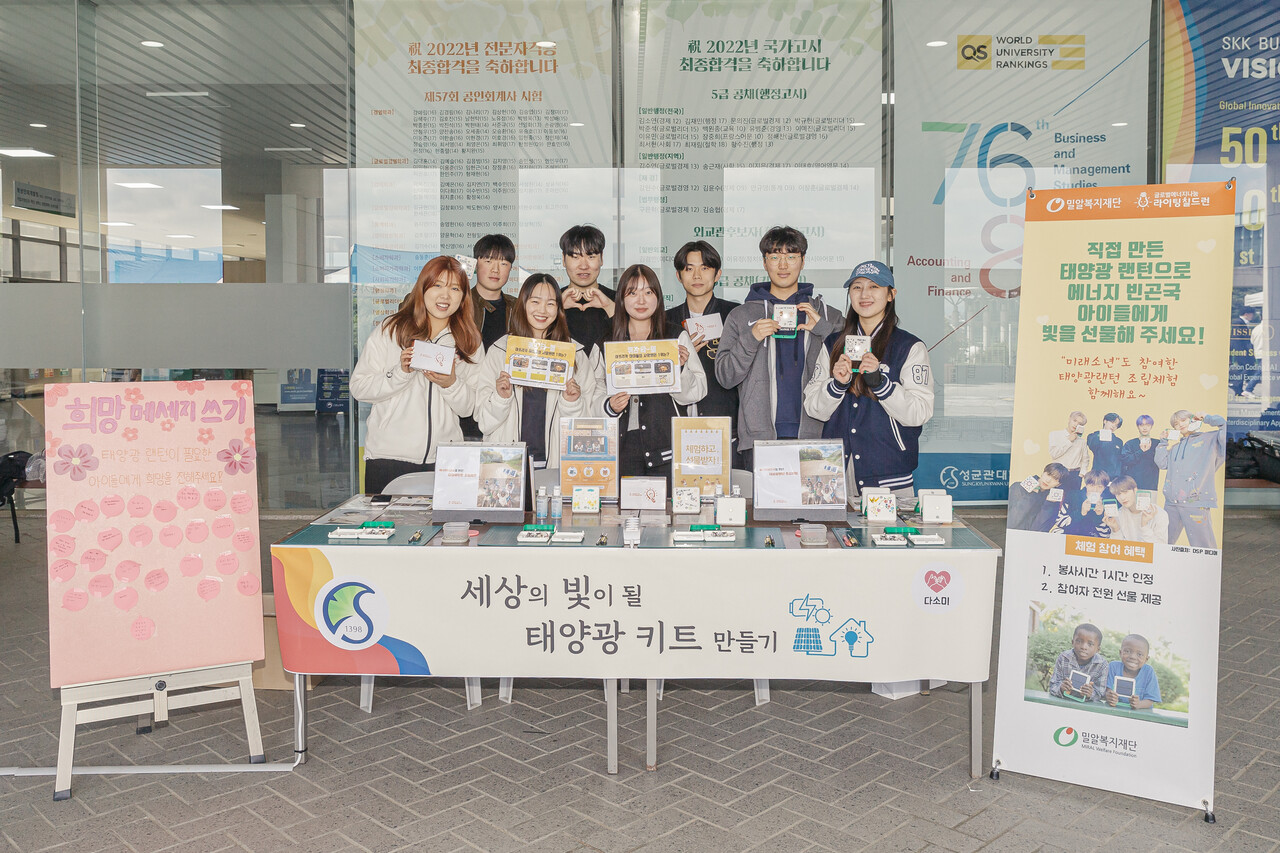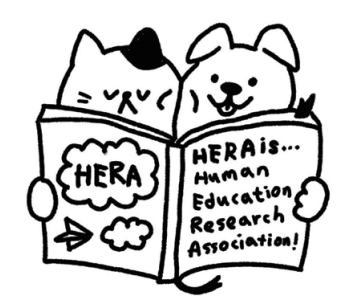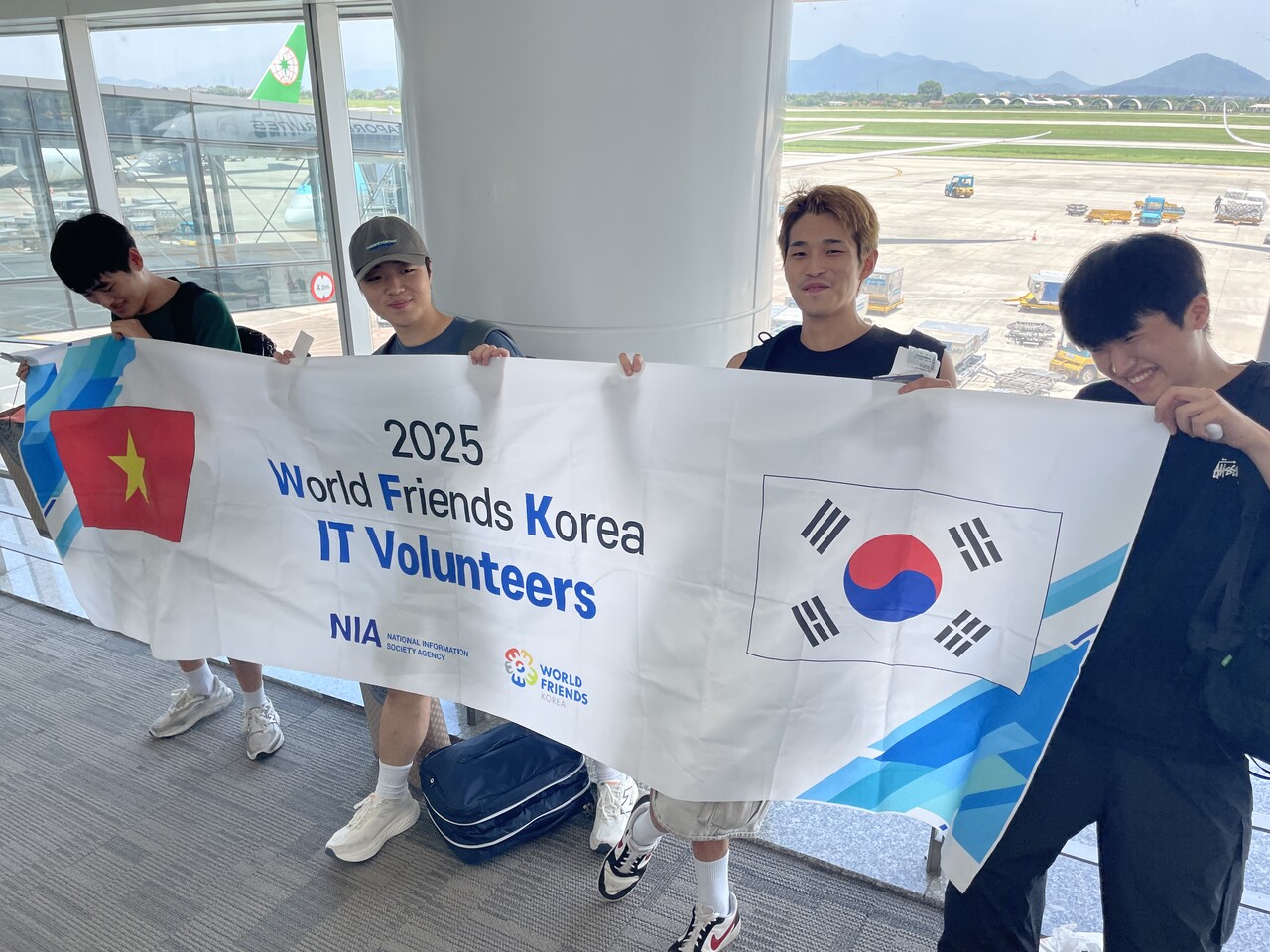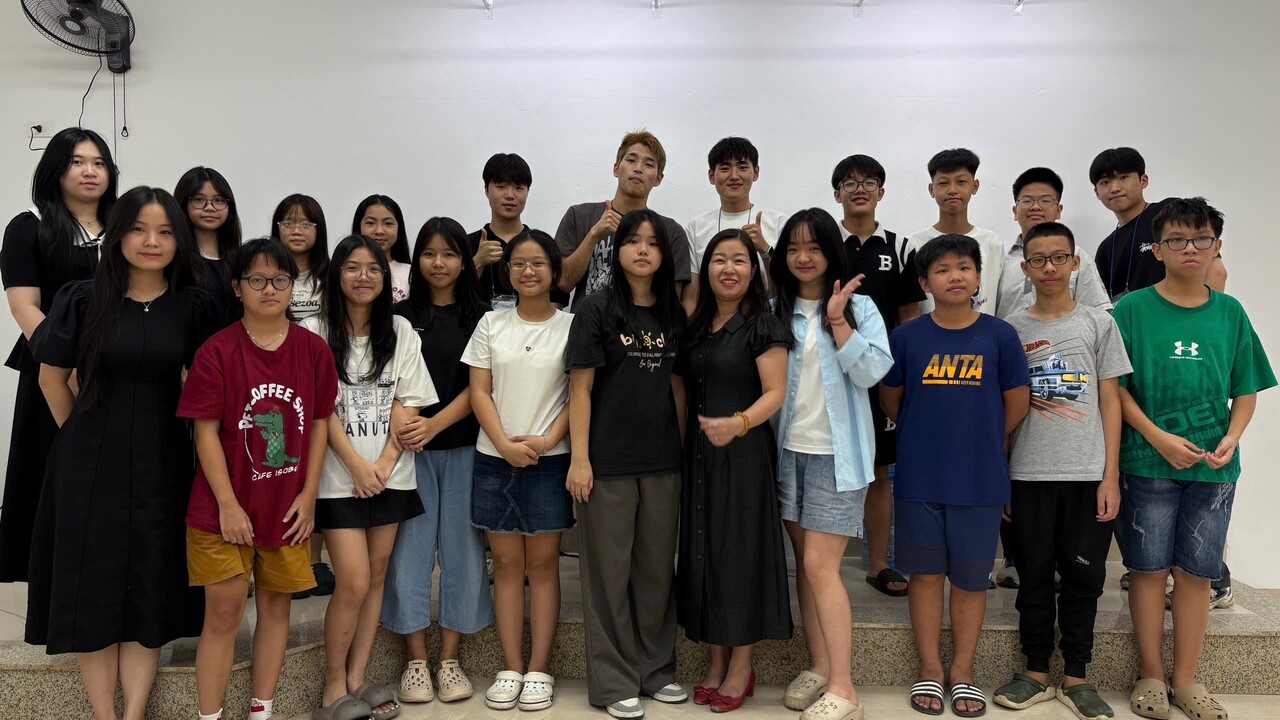In today’s universities, volunteerism is not merely a requirement to cross off a list — it is a bridge, built beyond the classroom, connecting students with communities, cultures, and stories they might not encounter otherwise. In response, the Sungkyun Times (SKT) highlights volunteer activities at Sungkyunkwan University (SKKU), from organizations to individual stories, so that students can rediscover the value of service.
The Doorway to Volunteerism
-The Sam-Pum Jae at SKKU
In recent years, volunteerism and character education have been gaining greater importance across Korean universities. Many institutions now integrate community service and ethical training into their official curricula, aiming to foster empathy and social responsibility among students. This shift reflects a growing belief that universities should cultivate civic-minded citizens who make meaningful contributions to their communities. Since 1996, SKKU has implemented the Sam-pum Jae or the Three-Certification System, which includes Character, Global, and Creativity domains as a graduation requirement. Later, in 2020, the Sam-pum Jae was reorganized — the Character domain became mandatory. The Character certification can be earned through activities in the Social Service, Social Contribution, and Self-Development categories. To earn it through Social Service, students must complete 40 hours of activities, including at least 20 from external volunteer activities. These hours can be accumulated through social service courses, university-run volunteer clubs, and approved external programs. In this way, SKKU encourages students to grow into responsible individuals who embody the spirit of service.
-The Role of UR1004
Students interested in volunteering can find approved opportunities through SKKU’s online platform, UR1004. The number 1004 is pronounced cheonsa in Korean, which means angel. UR1004 reflects its role as a bridge between students and organizations, bringing the spirit of service to life. The website offers program details and guidelines, making it easier for students to get started. It also provides lists of volunteer opportunities in education, environmental conservation, community outreach, and overseas missions, offering students diverse options to match their skills and passions. Notably, the platform verifies participation, simplifying the certification process for students. Ultimately, UR1004 serves as a gateway to a socially conscious future.
Spreading Kindness
-The Heart of SKKU's Volunteerism: Dasomi

To better understand how volunteerism is practiced on campus, it is worth looking at SKKU’s flagship volunteer group. Dasomi, derived from the Korean word dasom, meaning love, is SKKU’s one and only representative student volunteer group, composed of students selected through an official recruitment process. Guided by the principle, “I, too, can be someone who helps others,” the group focuses on spreading kindness both within and beyond campus. Dasomi’s main programs include rural community support projects, youth education initiatives, and collaborative activities with local welfare institutions. Members are trained in empathy-building, ensuring their work fosters mutual respect and understanding. Recently, members have participated in reading books for children, providing support to individuals with disabilities, and assisting at an orchestra festival. Such experiences raise awareness and connect members with the communities they serve.
-A Closer Look at SKKU’s Central Volunteer Clubs

At SKKU, volunteering is never out of reach — SKKU has several central volunteer clubs that are open to all students. Among them, the SKT introduces HERA from the Humanities and Social Sciences Campus and SaramSarang from the Natural Sciences Campus. HERA, an acronym for Human Education Research Association, has distinguished itself with a long-term educational initiative. In December 2020, the club signed a Memorandum of Understanding (MOU) with the Seed Community Child Center located in Dobong District. Their service focuses on academic mentoring in subjects like mathematics and Korean, providing support for younger students. Secondly, SaramSarang, established in 1989, engages in both educational and recreational activities designed to support children in need. This club’s name carries a special meaning: in old Korean, sarang does not simply mean love, but also to think. The founders believed that true service requires the ability to understand and genuinely consider the needs and feelings of those served. True to its name, the club continues to uphold these values through a variety of community-based initiatives. Currently, they continue steady collaboration with local organizations such as the Areumdri Center and the Together Care Center in Suwon City. Together, HERA and SaramSarang exemplify how SKKU turns service into lasting impact beyond one-time efforts.
Personal Volunteer Stories
At SKKU, some students go beyond existing programs by planning and carrying out volunteer projects that reflect their own passions and ideas. To capture such unique experiences, the SKT shares the story of the student team S.T.E.P (Serve To Empower People), which completed a month-long volunteer program at Thang Long Middle School in Hanoi, Vietnam.

Choi Dong-won (Junior, Department of English Language and Literature), Lee Geun-woo (Freshman, Department of Computer Education), Cho Jae-hyeon (Senior, Department of Computer Education), Heo Ju-whan (Senior, Department of Computer Education)
Q1. What inspired your team to design and participate in this volunteer program?
There was no particular reason. We simply thought, “Let’s do something meaningful during the vacation.” Our leader reached out to gather members, and although the group came together rather quickly, we soon discovered how well we worked as a team. With little time to prepare for the interview, we boldly decided to dance. Performing right in front of the interviewers, we showcased our energy — something we believed would resonate well with middle school students. This spirited approach helped us secure a spot in Vietnam.
Q2. Please briefly explain the initial planning stage.
Unlike many volunteer projects with a set curriculum, this program had no fixed structure. Every detail — from schedules to lesson plans — had to be created by our team. We held weekly meetings, divided responsibilities, and created lesson content. In addition, we attended the orientation of World Friends Korea (WFK) and the local training offered by the Korea International Cooperation Agency (KOICA).
Q3. How did your team divide roles, and what activities did your team carry out in Hanoi?
Our classes focused on two areas: Information and Communication Technology (ICT) education and cultural exchange. Senior members prepared the ICT lessons, while the younger non-majors developed cultural programs. Since most students there had no laptops and were unfamiliar with artificial intelligence (AI), we designed the lessons to be smartphone-based. Activities included creating avatars, composing music, and building webpages using AI tools. On the cultural side, we introduced Korean expressions through K-dramas, explored traditional fashion, and made hwachae, a Korean fruit punch.
Q4. Were there any unexpected challenges during preparation or on-site?
Because the school was under construction, securing classrooms and lesson times was a constant challenge. Our plans had to be revised repeatedly to accommodate the changing conditions. Also, midway through the program, a typhoon hit Hanoi, causing leaks in our accommodation and forcing us to relocate to another building.
Q5. Was there a particular episode during the program that left a strong impression?
We cherish all of the moments we shared. One unforgettable memory was receiving a flood of comforting messages from students after one of our members cried during the final class. We also remember the joy of students who, eager to preserve the bonds we had built, asked to take photos together after lessons.
Q6. After running the program, how did your perspective on volunteering change?
The experience reshaped our understanding of social engagement. In the past, we thought volunteering meant simply doing our best within given conditions. Now, we believe it is about creating value beyond those limits. Looking into the bright eyes of the students made us realize that teaching someone is an incredible privilege. At first, some of us worried whether we had anything meaningful to offer, but in the end, we gained confidence — not only in our ability to contribute, but also in pursuing a life that goes beyond studies to truly engage with people.

“The best way to find yourself is to lose yourself in the service of others,” said Mahatma Gandhi. Volunteerism at SKKU is not just a step toward graduation, but a meaningful journey that shapes character, empathy, and understanding. Kingos, embrace volunteerism as a part of your university life, and let it guide you toward discovering the deeper value of kindness.
